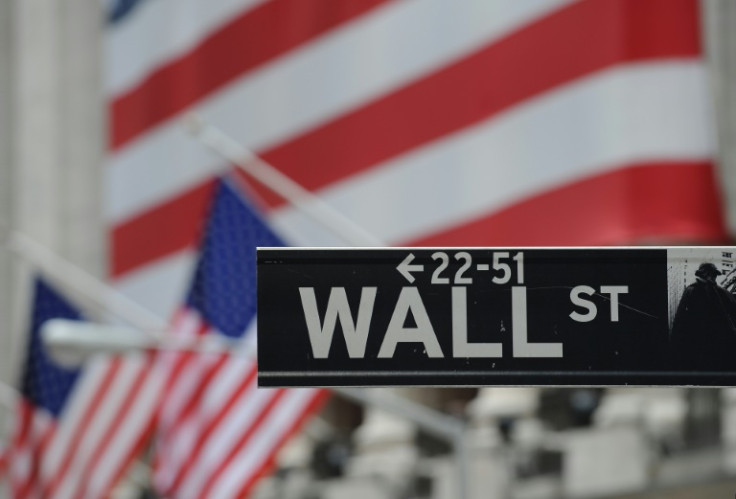Stocks And Bonds Get A Boost From The Easing Of Consumer Inflation — Will The Rally Last?

The easing of consumer inflation Wednesday brought a wave of optimism to Wall Street, reigniting hopes of interest rate cuts and fueling a rally during the regular trading session.
At the market close, the S&P 500 was 5,308.15, up 1.17% for the day; the Dow Jones was 39,908, up 0.88%, and the tech-heavy Nasdaq was 16,742.39, up 1.40%.
Meanwhile, the benchmark 10-year Treasury bond was trading at a yield of 4.35%, down from 4.45% at the previous closing.
Traders and investors liked a report by the U.S. Bureau of Labor Statistics before the market opening, which showed that both headline and core consumer inflation are easing.
The headline Consumer Price Index (CPI), a broad measure of consumer inflation, rose by 3.4% in April 2024, less than the 3.5% rise in March. In addition, the core CPI came at 3.6%, less than the 3.8% in March 2024.
"The April CPI report was much more encouraging than the prior three reports, with many key categories moving in the right direction,"said Sonu Varghese, Global Macro Strategist at Carson Group. "We're continuing to see easing food prices and deflation in commodities outside food and energy. Even on the services side, we saw some easing in auto insurance and shelter inflation while prices for airfares fell."
Scott Helfstein, SVP and Head of Investment Strategy at Global X, strikes a more positive tone.
"There are many things that investors could worry about, but inflation isn't among them," he said, adding, "The Fed has made progress towards the 2% goal, and the current inflation readings are not worrisome."
Julia Pollak, ZipRecruiter's Chief Economist, sees the Fed's restrictive policy moving the needle of the economy in the right direction. "Inflation is still too high, but it now seems like the first-quarter reports were an anomaly," she said. "Inflation continues to ease along with economic growth, job growth, and consumer spending. Restrictive interest rates are putting a slow squeeze on the economy and having the intended effect of cooling inflation, even if only gradually and unevenly."
Kurt Rankin, senior economist from PNC Financial Services Group, believes the latest inflation numbers playing nicely for the Fed Doves. "The April 2024 CPI report should provide some sense of relief among Fed officials and monetary policy Doves in general, as the most stubborn CPI categories of Housing and Services, less Rent of Shelter, offered their first glimpse of easing in some time," he explained.
"The Fed needs additional evidence before lowering interest rates," Rankin added. He expects two (2) 25 basis point rate cuts this year, in September and December.
Still, Wall Street may be too quick to declare victory for the Fed in its battle against U.S. inflation, as both headline and core consumer inflation remain elevated, well above the Fed's 2% target.
Then, there is the headline April Producer Price Index (PPI) — a measure of wholesale inflation. It rose at an annual rate of 2.2% in April 2024, up from 1.8% in March, 1.6% in February and 1% in January. It's the steepest gain since May 2023.
In addition, core PPI, excluding food and energy costs from calculations, rose at an annual rate of 2.4% in April, up from 2.1% in March. These numbers suggest wholesale inflation is accelerating, though it remains very close to the Fed's target of 2%.
Meanwhile, Michigan University's consumer expectations of inflation for the year ahead came at 3.5% in May 2024, up from 3.2% in April.
Wall Street's rush makes some market observers skeptical about its declaration of victory on the inflation front and the Wednesday rally of stocks and bonds.
Gianmaria Feleppa, Market Expert and CEO of UCapital Fintech Group, is one of them.
"Today's market's reaction seems related to the view that the Fed will cut rates in September," she said. "I think that's overly optimistic. Today's news lowers the probability that the Fed will raise rates. But I think it will continue to delay rate cuts until it feels confident that inflation is coming down. We're still far away from the Fed's 2% inflation target. While CPI for core goods came down, services still go in the wrong direction. Yesterday, Fed Chair Powell said he expects rates to stay higher longer. I think the market should listen to him."
Robert R. Johnson, PhD, CFA, CAIA, founder and CEO of Economic Index Associates, is another expert who reminds investors that a single month does not constitute a trend. "This Fed has indicated that they are very data-driven and, while today's numbers are consistent with cooling inflation, the Fed will certainly wait for further confirmation before moving from a restrictive monetary policy to a more expansive one, or even to an indeterminate monetary environment," he added.
© Copyright IBTimes 2024. All rights reserved.






















